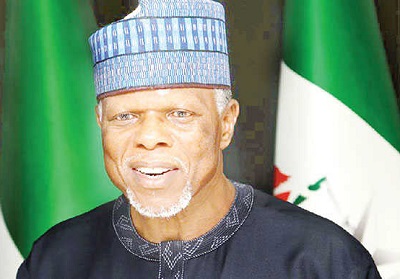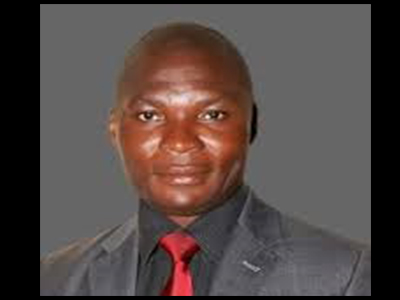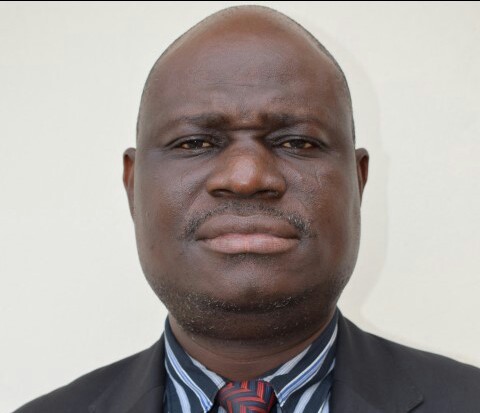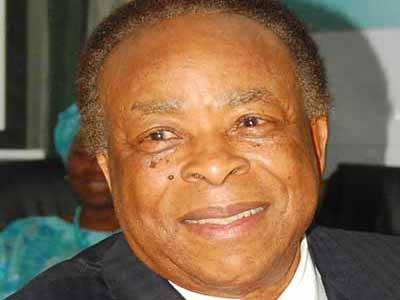Why Govt Agencies Operate Indiscriminately Outside Ports – Apampa
By Kenneth Jukpor & Yusuf Odejobi
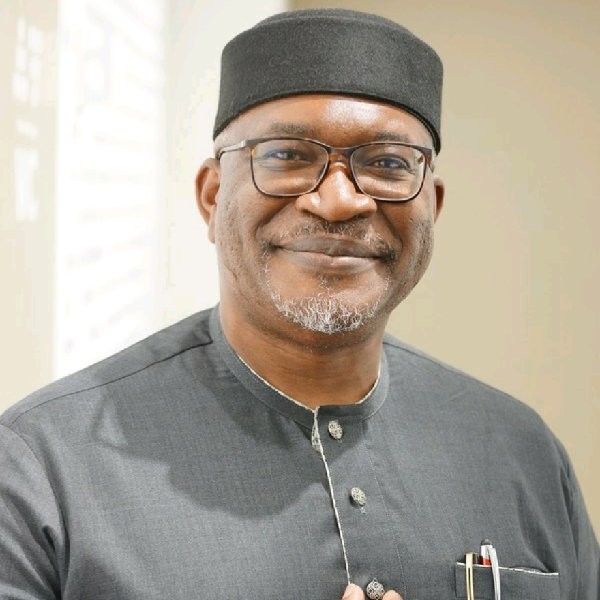
Mr. Soji Apampa is a Co-Founder and Chief Executive Officer of Integrity Organization Limited GTE, an anti-corruption research, advocacy & consulting organization concerned with issues of accountability and transparency in public and business life.
Apampa also co-founded The Convention on Business Integrity in 1997, where he doubles as an Executive Director and serves as a Consultant on CBi projects.
In this exclusive interview with MMS Plus newspaper, he speaks on a wide range of issues concerning Nigerian ports, proffering strategies to boost integrity and transparency in the system. Excerpts:
Nigeria Customs Service (NCS) clear cargoes at the port and the same cargoes get intercepted by Customs on the port access roads, highways and interstate roads. How can this unfortunate trend be curbed?
I’ve spoken to some of the freight forwarders and my understanding is that there’s a challenge within the port but the challenge itself is not getting cargoes released within the port. The problem starts from trying to get out of the port gate. Sometimes, it’s the same agents that released the cargoes that would also accost you again at the port gate. The other issue is when you try to get out of the port, then you would be accosted by the federal task force team which Customs are part of or other units of various government agencies that examined the goods at the ports.
My question for them is why are these agencies second-guessing the people who released the cargoes in the first place? Is it not showing that the left doesn’t know what the right is doing, even though they are under the same agency? Is this not showing there’s a lack of trust within the system otherwise why do they need to double-check in several layers. The problem doesn’t stop there, from the port gate to the warehouse of the importer; there are many checkpoints cargoes go through. We’re recently hearing as well that from the warehouse to the distributor, importers still face the same challenges.
In the transport system for goods, the receipt of the goods is cleared by Customs and the subsequent interception adversely adds to the cost of doing business and it is now becoming unbearable for manufacturing and trading companies.
So, what can we do? We have Standard Operating Procedures (SOP) within the port so it is clear how to fight if things have gone wrong within the port system. What we do not seem to have is clear SOPs for the officers who are outside the port. I don’t see any SOP saying if we stop you outside the port, this is why we’re doing that and this is what we’re allowed to do and so on. So, the first thing is to get SOP for officers on the roads. I believe that working closely with the Nigerian Shippers’ Council (NSC) and the Federal Ministry of Transport can make this happen.
There was a time NSC was projected to become the National Transport Commission but that did not quite happen so there’s a need to have a business ombudsman. Nevertheless, NSC has been playing that role very well within the port. In situations where there’s a hike in charges that have not been agreed on, NSC has been fantastic in helping shippers get their money back. They have gone as far as locking up premises of companies that refuse to reverse the illegal charges. What we need is for this to go beyond the port.
Right now, we need compliance but it starts with having SOP, a grievance reporting mechanism then we can now have a compliance officer to ensure that rank and file know what the SOPs are and enforce discipline.
There was a time the Independent Corrupt Practices and other related offences Commission (ICPC) championed Port Service Support Portal (PSSP) and SOP for agencies at the port, how has that helped?
We have this PSSP but the name says “port”, it only handles what happens within the port. So there’s a need to extend it to cover outside the port. SOPs are clear within the port but what happened outside the port is not covered. That’s why I said earlier that it needs to be done in partnership with NSC because inter-modal transport is now a matter of concern for them. They also work on container returns, delays at the port, extra charges on containers because of the Apapa gridlock and thelikes.
NSC is now resolving all these issues. It’s an issue we all need to come together and put on the table of NSC. We already made the first step with something called Integrity Alliance which freight forwarders have already signed up into. Now, we want to take their agenda and engage the Federal government on it but engaging them will not be productive if we don’t have a compliance unit otherwise you’ll be forced to policing it yourself. But they set up their compliance unit then they can monitor it themselves which was why I talked about the work of the office of Provost Marshal within Customs.
Meanwhile, there has to be consequence management. In a situation you catch someone doing wrong and that person continues to do it, there has to be a consequence for that action but when there is no consequence then everything is futile. There’s a need to negotiate consequences on every action. Consequences for people carrying contraband goods, and consequences on officers who are misusing their powers to support such illicit practice.
Last year, a technical team from the World Bank visited the nation’s ports and highlighted 24 hours cargo clearance as a core area to improve. Nigeria’s Vice President, Prof. Yemi Osinbajo also pushed for 24 hours port operations via an Executive Order but it didn’t work. How crucial is getting this done even as the nation strives to compete favourably with the African Continental Free Trade Agreement (AfCFTA)?
The former Executive Secretary of NSC, Mr. Hassan Bello mentioned that the government intends to enable cargo to be cleared within 24 and 48 hours and that this remains the target which is a very important target to reach. Otherwise, we cannot be a regional hub and we will not be able to take full advantage of AfCFTA to conduct businesses competitively. If importers can clear cargoes in other neighbouring countries in 48 hours or less, but it takes more than 8 days to clear cargoes in Nigeria then what are we competing with? We’re a non-starter. This is something we need to fix but to fix it is not such a big deal. All we need is a commitment from the government and to ensure that we have SOPs that extend to all operations in the maritime sector. Once it is in writing by each of the agencies, then it’s easy to hold them responsible based on what they have written down as their SOPs.
Revenue generation vis-a-vis trade facilitation is another dilemma for most maritime agencies, especially Customs. Last week, they announced over N1trillion revenue collected in just 6 months and the bulk of the money is coming from import duties. For an economy striving to develop exports, how do we achieve this and strike the balance for revenue generating agencies?
Let’s go back to the political economy of the government asking agencies to subscribe to revenue targets. It is, for this reason, I believe that not all operations of Customs are covered by the SOPs. The biggest place Customs would get revenue is from oil and gas, and most of the operations are not covered by the SOPs. When Customs threatened to shut down oil rig companies if they didn’t dance to their tunes then they succumbed and negotiated because shutting down an oil rig might cost them millions daily. So, we can point to these problems as actions outside SOPs.
Our first campaign is that all Customs operations must come under SOPs, otherwise they can’t be held to account for any behaviour. Rather than talking about corruption, let’s begin to talk about efficiency and effectiveness and that is controlled by SOPs because if you do it according to your SOPs it’ll be effective and efficient. Most importantly, all stakeholders have to agree on it and in a situation, if they don’t all agree then they must be aware of it and know what to expect.
How would you rate the current Nigerian Port Process Manual (NPPM)?
NPPM is a fantastic addition to existing SOPs. But you can see that it is generic, it explains what needs to be done within the port but it doesn’t cover what should happen on the roads. Textbook wise it covers everything but it doesn’t cover things like for example mid-stream discharge from one vessel to another, the SOPs doesn’t cover those kinds of details but this is where the issues come up within the oil and gas sector.
It doesn’t cover when NIMASA enquires the foreign workers on the rig. NPPM is a very helpful document and a quality addition that can make at least 80% of port processes clearer. However, we still need to expand the SOPs.
Ship manifests are being sent manually and most shipping lines complain that they spend a lot to print these thousands of documents to give to NIMASA, NPA and Customs. There has also been a call for port automation and a Single-Window which will enhance transparency and efficiency. What is your reaction to the current practice at Nigerian ports?
Some of our collaborators at the Council for the Regulation of Freight Forwarding in Nigeria (CRFFN) keep stressing that there is a need to digitize our processes and the need for digital transformation. It is necessary to look at the whole process and make sure that it’s working. The question is why are they not doing it? It’s not rocket science, it is simply back to the politics and the political will to get it done.
Except we form this Integrity Alliance and people join, we may not achieve this. The reason the government is answering the Maritime Anti Corruption Network (MACN) is that they represent 75% of all containerized cargoes. We also need to adopt a similar approach and get real membership with a real voice to demand these things and I tell you the government would listen. They have actually listened, we just need to put more pressure on the private sector and demand for these things. It’s not part of our culture but this is an area we have been trying to improve on.
Non-functional scanners have led to an increase in the number of agencies at the port, while some argued for a reduction, others are clamouring for their inclusion. How do we go about the agencies that should be at the seaports?
This is back to political will. Does the federal government really want to address the situation or not? I know for sure in the executive order, they’ve streamlined the agencies at the ports and many of those agencies are still lobbying to be back. Many would argue the port belongs to Customs. Let’s agree the port belongs to Customs then, there should be relevant agencies that need to support Customs activities but not to have about 13 agencies doing almost the same thing.
What Nigeria has done in the SOPs for instance states that boarding of vessels by agencies should be done together. Also, they added a time limit not exceeding 90 minutes. So, armed with those SOPs, ship captains have now started to escalate when agencies don’t respect the SOPs.



